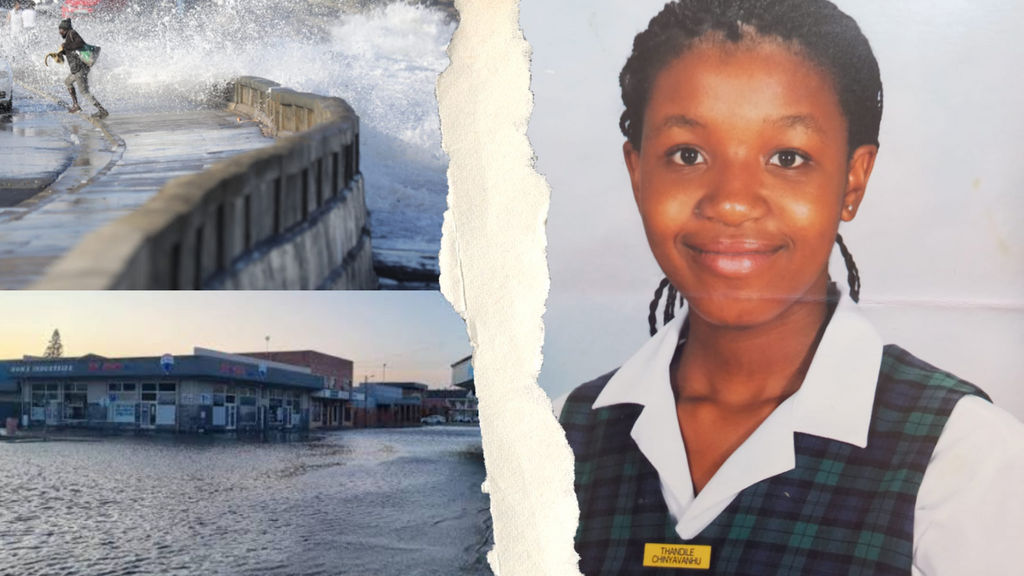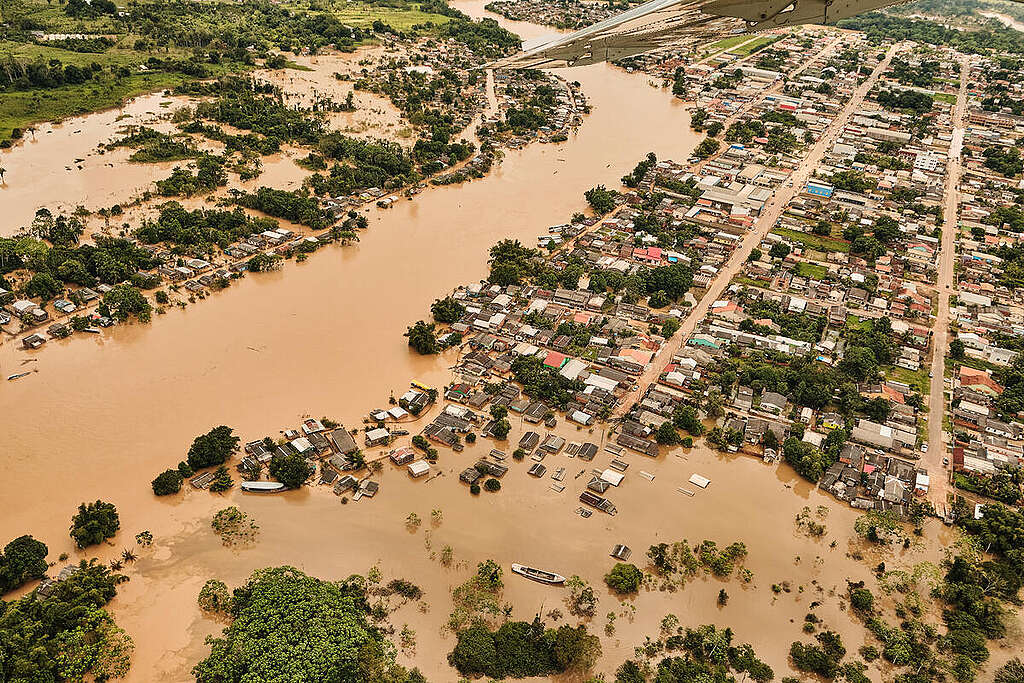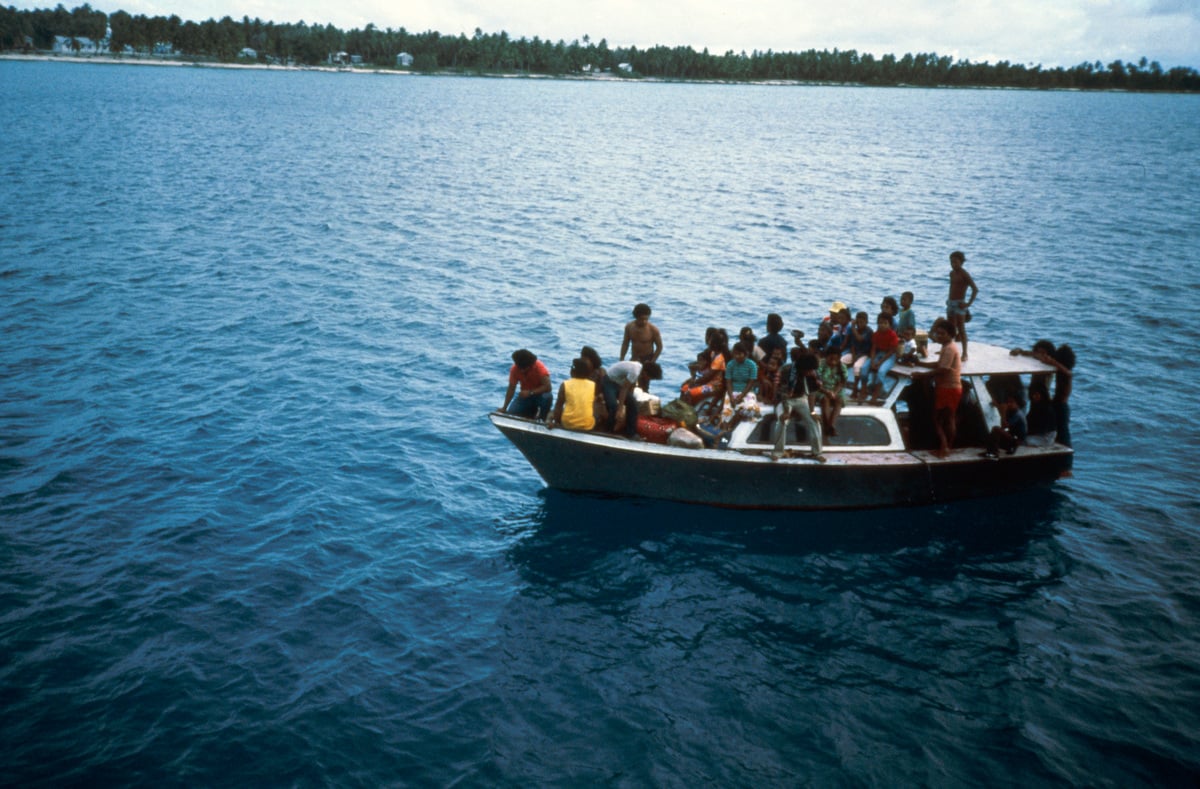Each year, as December draws near and I prepare for my journey home, I am seized by a growing sense of anxiety. This unease isn’t stemming from the inevitable barrage of questions from my family about my life in Johannesburg, South Africa, or when I plan to marry. As I sit and search for the root of this knot in my stomach, it is all too clear.

It has become a constant presence in my waking and sleeping hours. It is the rainy season in Southern Africa. The fear of when flooding returns – will my family be safe? Can I afford to repair the damage if disaster strikes again? Last time, it was the backyard wall of my mother’s home that was damaged, but what if it’s worse next time?
My family is from a small coastal town in the Eastern Cape. It can only be described as idyllic. The green expanse of cascading hills is broken only by clusters of vibrant wildflowers. The air is filled with a salty sweetness, a tranquil symphony of the sea meeting the land. There is no place I feel more at ease.
However, with the growing frequency and intensity of flooding, that has changed. These feelings of anxiety grew more pronounced last year as a surge of spring tides with waves as high as 9.5 metres pillaged the Southern Coast. I watched on helplessly as my social media was flooded with footage of familiar landscapes deluged. My frustration grew as I observed my community grappling to understand the disaster. Social media was awash with conjectures of doomsday and ancestral wrath. But to me, the culprit was clear – it was the stark reality of climate change – global heating driven by a polluting industry that’s insatiable for profit at any cost.
As a result of climate change turbo-charged by fossil fuel emissions, we are seeing more and more extreme weather emergencies at scales we’ve never experienced that we are not prepared for. Worldwide, people are fiercely resisting floods, fires, droughts, and tropical storms, leading to sickness and death, and causing food and water scarcity. Impacted communities are showing courage and resolve to resume their lives despite the climate chaos.
It’s a scary time; the climate crisis is taking lives, and it will only get worse unless we change things. And to change things and address the climate crisis, fossil fuels must be phased out. Rich countries, the biggest historical polluters, should be the first to accelerate the phaseout. They should also provide crucial financial support to countries in the global majority to facilitate their transition to clean energy.
The fossil fuel industry cannot be trusted
Science is very clear: by burning fossil fuels and warming our atmosphere, the fossil fuel industry is burning our future.
Yet, while people face climate impacts, the oil and gas majors continue to allow their fossil fuel addiction to drive death, destruction and displacement for their own profit.
Fossil fuel companies are using every trick possible – outright lies, manipulative advertising, and pressuring governments with power play tactics – to stay in business, no matter what the cost.
They won’t stop unless they are made to, they will not take responsibility for the damage and harm they cause until we make them.
Who pays?
The fossil fuels industry has known for decades that its business operations would fuel the climate crisis, and should abide by the legal principle of “polluters pay”, holding corporations accountable when they have caused harm.
As communities reeling from the physical and economic consequences of extreme weather events demand justice, and as the world gears up for a fossil fuel phase-out, now is the time to make the big oil and gas companies pay for the loss and damage they have caused.
We need justice. We also need solutions… A transition to fair, efficient and renewable energy for all that will help safeguard our planet, because no amount of profit is worth destroying our home or our future.
If we want a chance of survival we must end fossil fuels – fast, fairly and forever – and it is governments’ responsibility to act to stop the oil, coal and gas industry’s dirty business, and transition our energy systems without delay.
The fossil fuel industry should stop drilling and start paying – sign the petition to demand an end to this toxic dangerous industry today.

It’s time to make the polluters pay. Sign now to hold the oil and gas corporations accountable, and support a safe and fair future for all.
Add your nameThandile Chinyavanhu is a Stop Drilling Start Paying Global Campaigner with Greenpeace International based in Johannesburg, South Africa.



